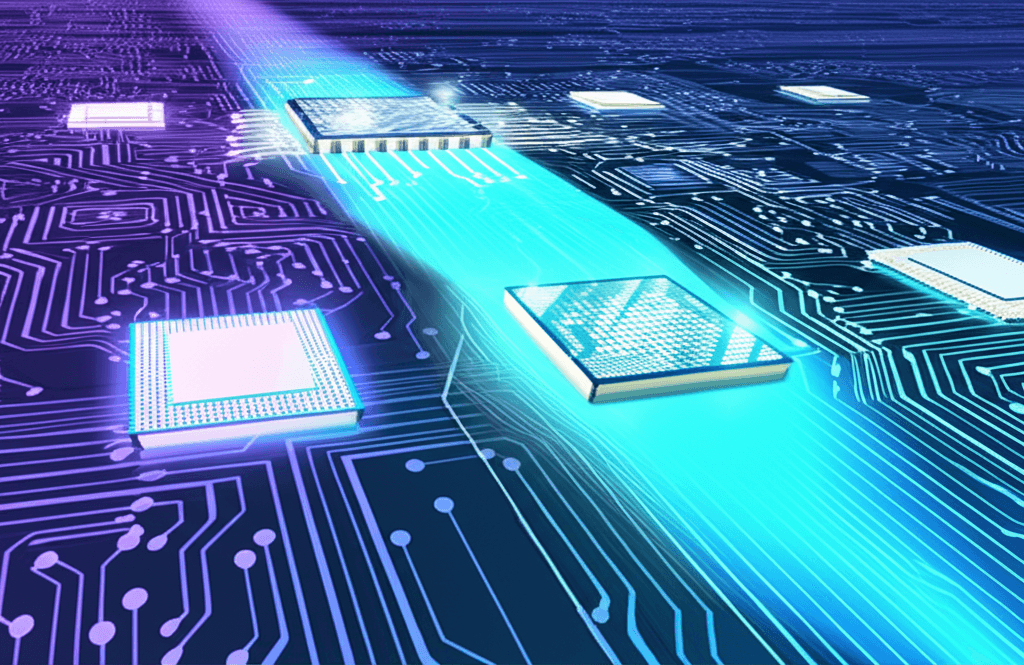Braga Chip Delay Widens Microsoft's AI Gap With Dominant Nvidia
Microsoft's next-gen AI chip, "Braga," hits delays, risking obsolescence and tightening Nvidia's grip on the market.
June 27, 2025

Microsoft's ambitious push to develop its own high-performance artificial intelligence chips has hit a significant snag, creating a wider gap with industry leader Nvidia and raising questions about its ability to control the ballooning costs of the AI boom. The company's next-generation AI accelerator, codenamed "Braga," has been delayed by at least six months, pushing mass production from its original 2025 target into 2026.[1][2][3] This setback not only delays Microsoft's goal of reducing its costly dependence on Nvidia but also means the chip is now expected to "fall well short of the performance" of Nvidia's current-generation Blackwell GPUs, which began shipping late last year.[4][5][6]
The delay in the Braga chip, the successor to Microsoft's first-generation Maia 100 accelerator, underscores the immense difficulty of designing and producing cutting-edge silicon to rival the established dominance of Nvidia.[7][5] The first-generation Maia 100, unveiled in November 2023, was a major step for Microsoft, representing a strategic pivot toward vertical integration to optimize its hardware for its Azure cloud services and its close partner, OpenAI.[8][7] Maia 100, built on TSMC's 5-nanometer process with 105 billion transistors, was designed specifically for Microsoft's hardware stack to gain efficiencies in performance and cost.[8][9][10] However, reports indicate the Maia 100 has seen limited use for powering generative AI services, with the Braga chip intended to be the true powerhouse capable of handling large-scale AI model training and inference.[5][11] The reasons cited for the current delay include unanticipated design changes, some reportedly requested by OpenAI, as well as staffing constraints and high employee turnover within the chip division.[2][5]
This development is a considerable blow in the fiercely competitive AI hardware landscape.[12] Major technology companies like Google, Amazon, and Meta are all aggressively pursuing custom chip strategies to break free from Nvidia's hold on the market and to tailor hardware to their specific AI workloads.[13][14] This strategy of vertical integration offers the promise of reduced operational costs, greater control over their technology stack, and optimized performance for their cloud ecosystems.[13][15][14] For instance, Google has found success with its Tensor Processing Units (TPUs), and Amazon is advancing with its Trainium and Inferentia chips.[13][3] Microsoft's stumble with Braga puts it on the back foot compared to these rivals, who have made more rapid progress in deploying their custom silicon.[2][3] The delay amplifies Microsoft's reliance on Nvidia's expensive and often supply-constrained GPUs, a dependency the custom chip program was designed to mitigate.[16][5][17]
The performance gap with Nvidia's latest offerings is perhaps the most concerning aspect of the delay. Nvidia's Blackwell architecture, unveiled in early 2024, represents a significant leap in performance over its predecessor, Hopper.[18][19][20] The Blackwell B200 GPU boasts 208 billion transistors and offers substantial boosts in AI training and inference speeds, with some metrics showing it to be multiple times faster than the previous generation.[18][19] For Microsoft's Braga, which was already facing the challenge of competing with the Blackwell series, a year-long delay means it risks being obsolete before it even reaches data centers in 2026.[5][6] The fast-paced evolution of AI models and hardware means that any delay can dramatically alter a chip's competitiveness.[21][22]
In conclusion, the six-month delay and performance concerns surrounding Microsoft's Braga AI chip represent a significant strategic setback. It highlights the profound challenges inherent in custom silicon development, even for a company with Microsoft's vast resources.[21][23] The delay not only solidifies Nvidia's market dominance for the near future but also intensifies pressure on Microsoft to manage the escalating costs of its massive AI infrastructure build-out. While the company continues to partner with Nvidia and AMD for its GPU needs, the slow progress of its in-house chip program complicates its long-term strategy for achieving greater efficiency, cost control, and a competitive edge in the critical AI hardware arena.[8][7][24] The ultimate success of Microsoft's AI ambitions will depend heavily on its ability to overcome these internal hurdles and deliver a custom chip that can genuinely compete with the industry's best.
Sources
[1]
[8]
[10]
[11]
[12]
[13]
[14]
[15]
[16]
[17]
[18]
[19]
[20]
[21]
[23]
[24]